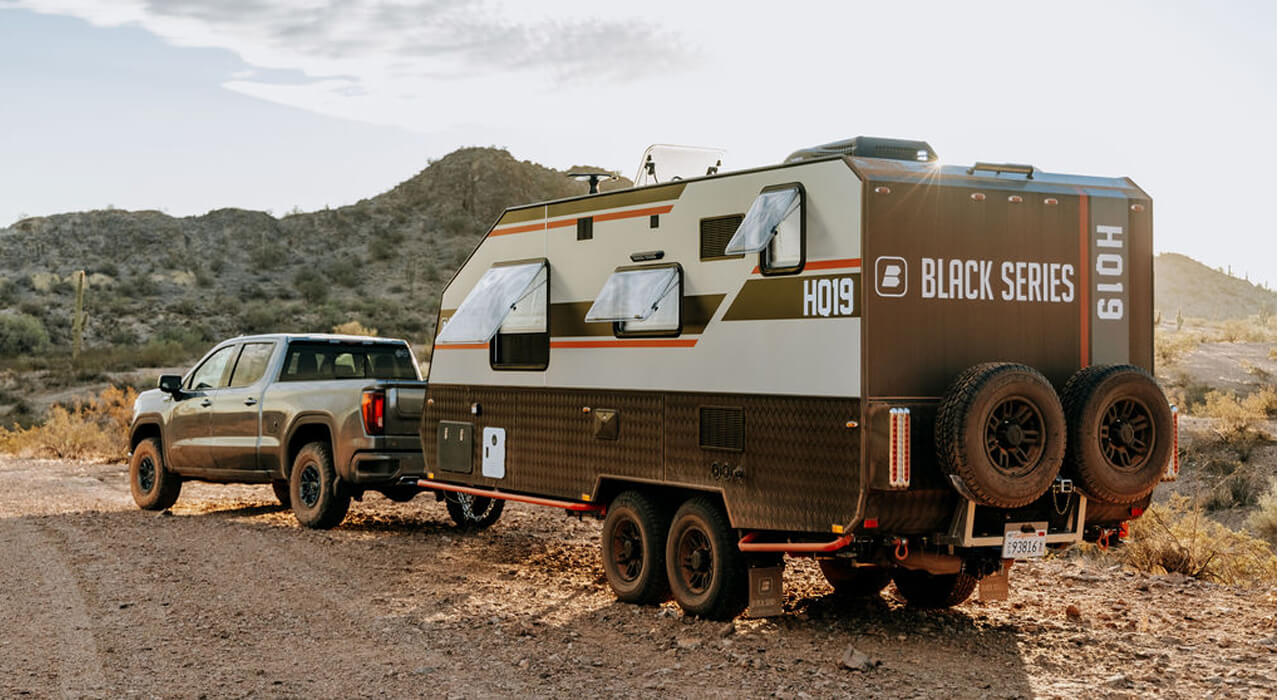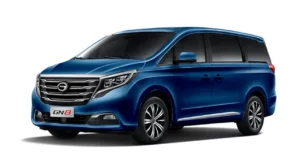Ready for a classic road trip with the freedom of home-on-wheels? Towing a travel trailer brings you that perfect blend of adventure and comfort. Yet, the task may appear daunting to novices and experienced caravanners alike. This article aims to dispel the fog, helping you to get a firm grip on the process of towing a travel trailer, ensuring both fun-filled journeys and safe returns.
What is a Travel Trailer?
A travel trailer, also known as a camper trailer or caravan, is a towable recreational vehicle (RV) that provides a place to sleep, cook, and relax while traveling. Travel trailers are typically towed by a truck, SUV, or in some cases, a large sedan. They range from compact models with basic amenities to large, luxurious variants that can rival a full-fledged home in terms of comfort and facilities.
Understanding Towing Capacity
The Concept of Towing Capacity
Towing capacity, simply put, is the maximum weight your vehicle can safely pull. This specification, determined by the manufacturer, takes into account various factors including the vehicle’s engine power, braking system, transmission, and chassis strength. Exceeding your vehicle’s towing capacity poses a serious risk to the vehicle’s performance, and more critically, to your safety.
Suggestion: Best Roomy Sedans of 2023
Calculating Towing Capacity
To calculate your vehicle’s towing capacity, you first need to know the Gross Vehicle Weight Rating (GVWR) – the maximum allowable weight of your fully loaded vehicle, including passengers and cargo, and the Gross Trailer Weight (GTW) – the total weight of the trailer plus its contents. The GTW should not exceed the towing capacity of your vehicle.
Finding Towing Capacity in Vehicle Manual
Usually, you can find the towing capacity in your vehicle’s manual or on the manufacturer’s website. You may also find it on a sticker placed on the driver’s door jamb, which also provides the GVWR and the Gross Axle Weight Ratings (GAWR).
Key Components of Towing a Travel Trailer
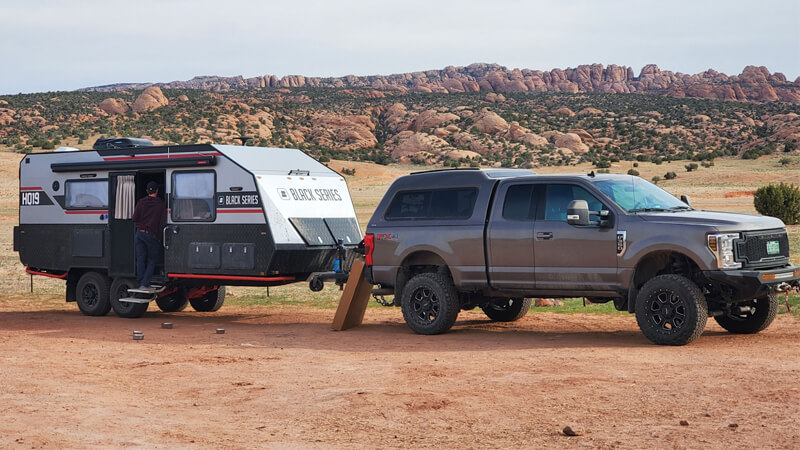
The Hitch
A critical component in the towing setup, the hitch connects your vehicle to the trailer. The right hitch can ensure a smooth ride and reduce the risk of an accident. Types of hitches include:
Weight carrying hitches: These are designed for lighter loads.
Also Read: Best Tires For Chevy Silverado 1500
Weight distributing hitches: They distribute the trailer’s weight to all axles of the towing vehicle and trailer.
The Brake Controller
The brake controller is a device installed in the tow vehicle that manages the electric brake system in the trailer. It ensures that when you apply the brakes in your towing vehicle, the trailer brakes are applied at the same time.
Towing Mirrors
Towing mirrors extend your field of vision to include the trailer. They help you maneuver the trailer more efficiently, especially while changing lanes or backing up.
Safety Considerations While Towing a Travel Trailer
Towing a travel trailer adds complexity to driving. The increased length, width, and weight will affect acceleration, braking, and maneuverability. Here are some essential safety considerations:
Maintain a steady, moderate speed: High speeds can lead to loss of control.
Anticipate stops and brake early: The added weight of the trailer means longer stopping distances.
Be cautious on curves: Take curves at slower speeds and avoid sudden turns.
Suggestion: Best Car Seat Covers 2023 To Protect Car Interior
Use a spotter when reversing: Having a person to guide you while reversing can help prevent accidents.
Secure your load: Ensure all items inside the trailer are secure to prevent shifting of weight.
Maintenance of a Travel Trailer
Just like any other vehicle, travel trailers require regular maintenance to stay in peak condition. This includes checking tire pressures, inspecting brakes, lubricating the hitch, and ensuring all lights and signals are operational.
How to Handle Common Problems While Towing a Travel Trailer
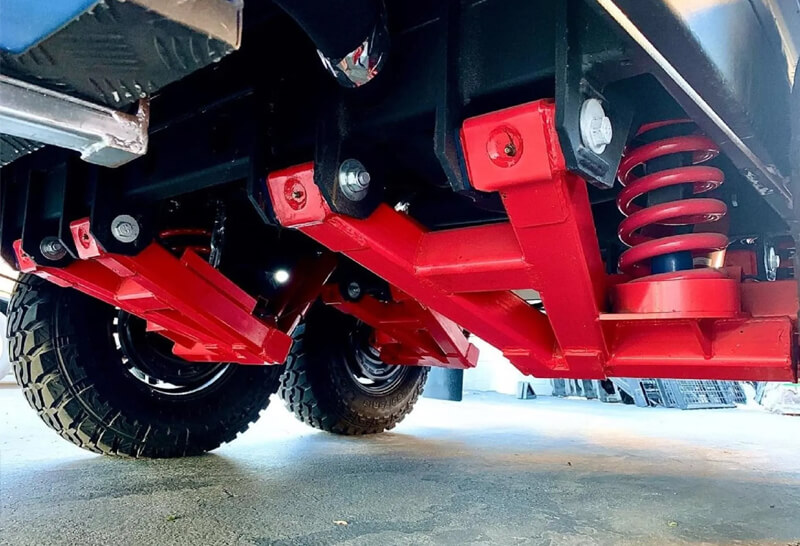
As with any journey, there are potential issues that can arise while towing a travel trailer. Below are some common problems and suggested solutions.
Swaying Trailer
Excessive sway can be dangerous and is typically caused by improper weight distribution or external factors like wind gusts and passing large vehicles. Some solutions include:
Use a weight distribution hitch with sway control for better stability.
Slow down and avoid making abrupt turns.
Load your trailer with 60% of the weight in the front half of the trailer.
Trailer Brakes Not Functioning
If you find your trailer brakes aren’t working, it could be due to faulty wiring or a malfunction in the brake controller. Here’s what you can do:
Regularly inspect and maintain the trailer brakes.
Check the brake controller for correct operation and settings.
Difficulty in Backing Up
Backing up with a trailer can be challenging due to its size and maneuverability. The following tips might help:
Practice in an open, empty area before hitting the road.
Use a spotter to assist you.
Remember that steering is reversed while backing up – if you want the trailer to go left, steer right.
Tips for Long-Distance Travel Trailer Towing
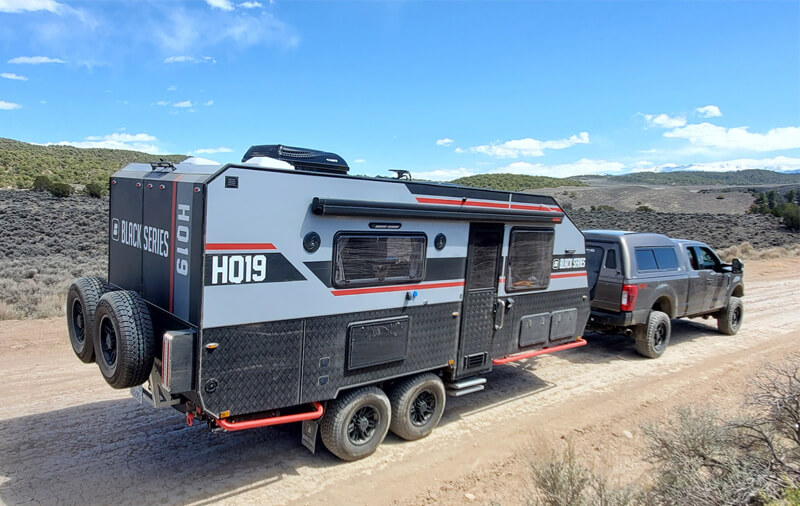
Towing a travel trailer over long distances is an exciting adventure. Here are some tips to ensure a safe and enjoyable journey.
Plan your route: Map out your route considering the size and weight of your trailer. Some roads and bridges may have restrictions for large or heavy vehicles.
Regular rest breaks: Every couple of hours, stop and rest. This helps you to stay alert and gives you an opportunity to check your trailer and vehicle.
Stay overnight at RV-friendly spots: Consider stopping at RV parks, campgrounds, or places with designated RV parking for a comfortable and safe night’s rest.
Carry essential spare parts: This includes tires, bulbs, and fuses. Also, make sure to carry the necessary tools to replace them.
Keep an eye on the weather: Bad weather can make towing more challenging. Stay informed about the weather forecast and adjust your plans accordingly.
Conclusion: Gearing Up for the Journey
Towing a travel trailer is a skill that combines technical understanding, precision, and a dash of adventure. By understanding the specifics of your vehicle, the trailer, and the way they interact, you’re well on your way to mastering this skill. This journey demands respect for safety rules, appreciation for regular maintenance, and a good grasp of handling common towing issues.
Venturing out on the open road with your home hitched to your vehicle is a special kind of freedom. You get to bring along the comforts of home while you explore new vistas, new experiences. It may seem complex, but with preparation and practice, you can confidently tow your travel trailer to the destination of your dreams.
Remember, every master was once a beginner. Start small, be patient with yourself, and keep learning. Here’s to the road that awaits you and the miles that will narrate your stories!
And, as always, refer to your vehicle and trailer manuals for guidelines and instructions specific to your equipment. Drive safe and enjoy the ride!
(Please note: Always adhere to local laws and regulations when towing a travel trailer)

